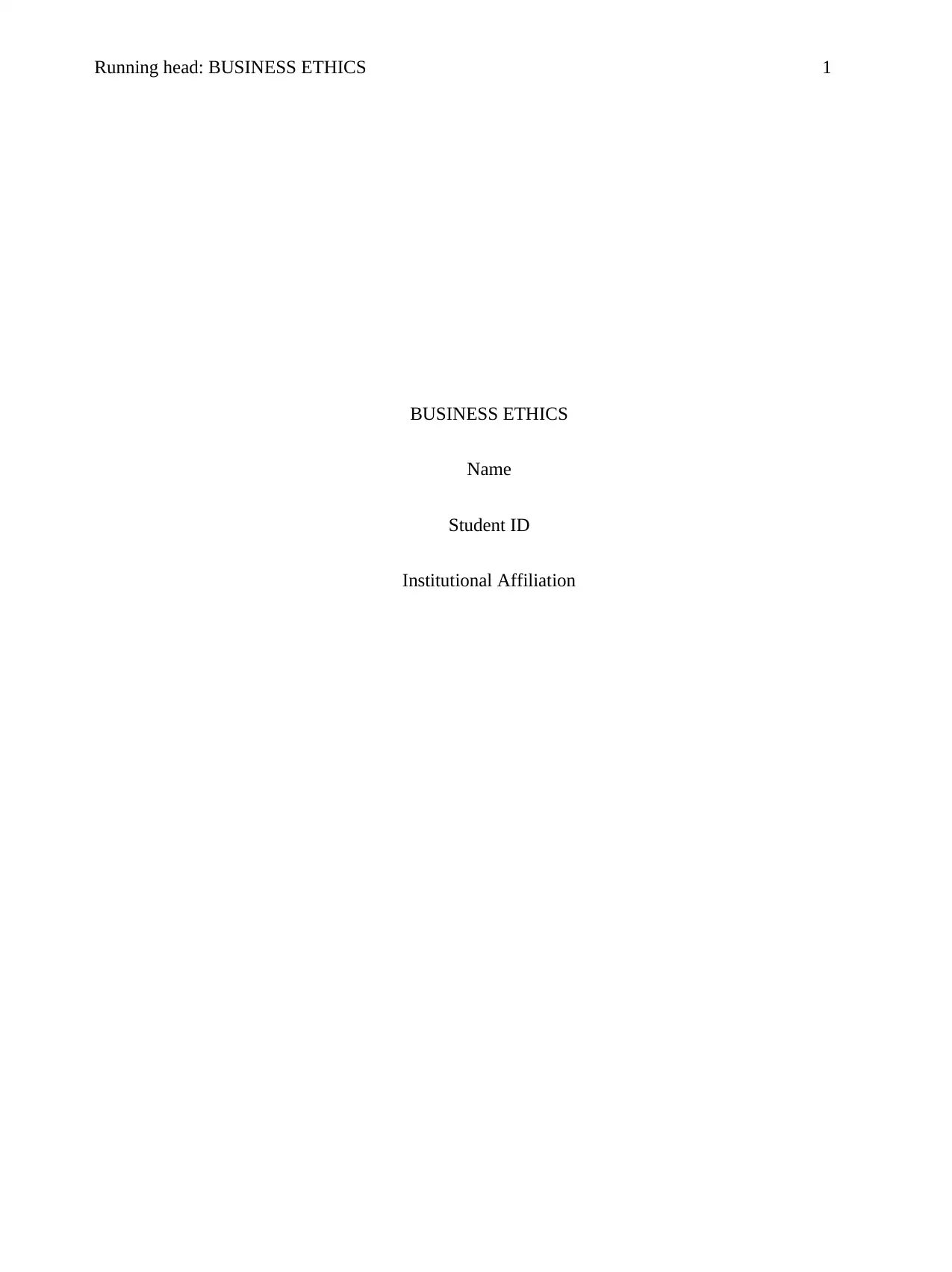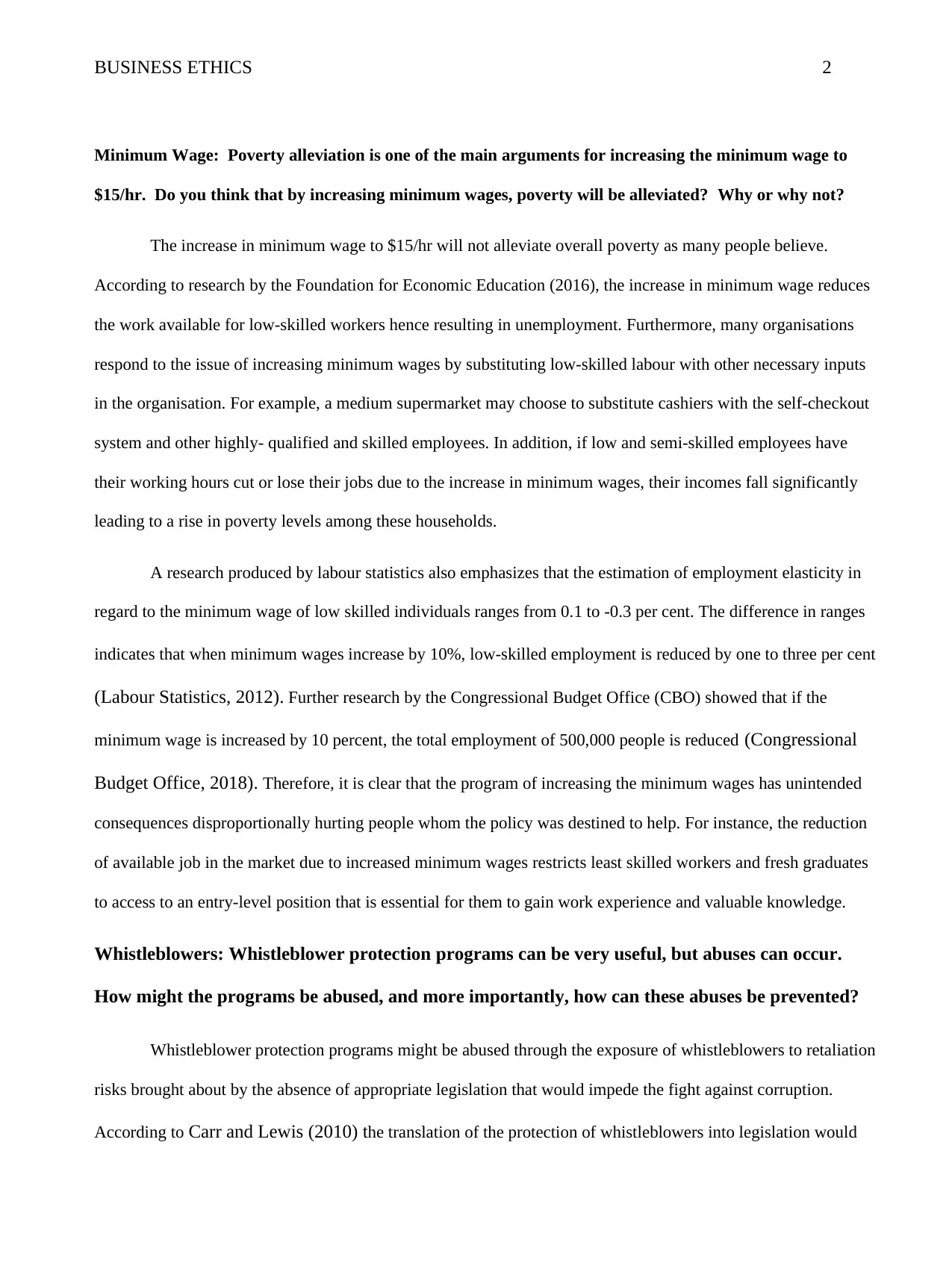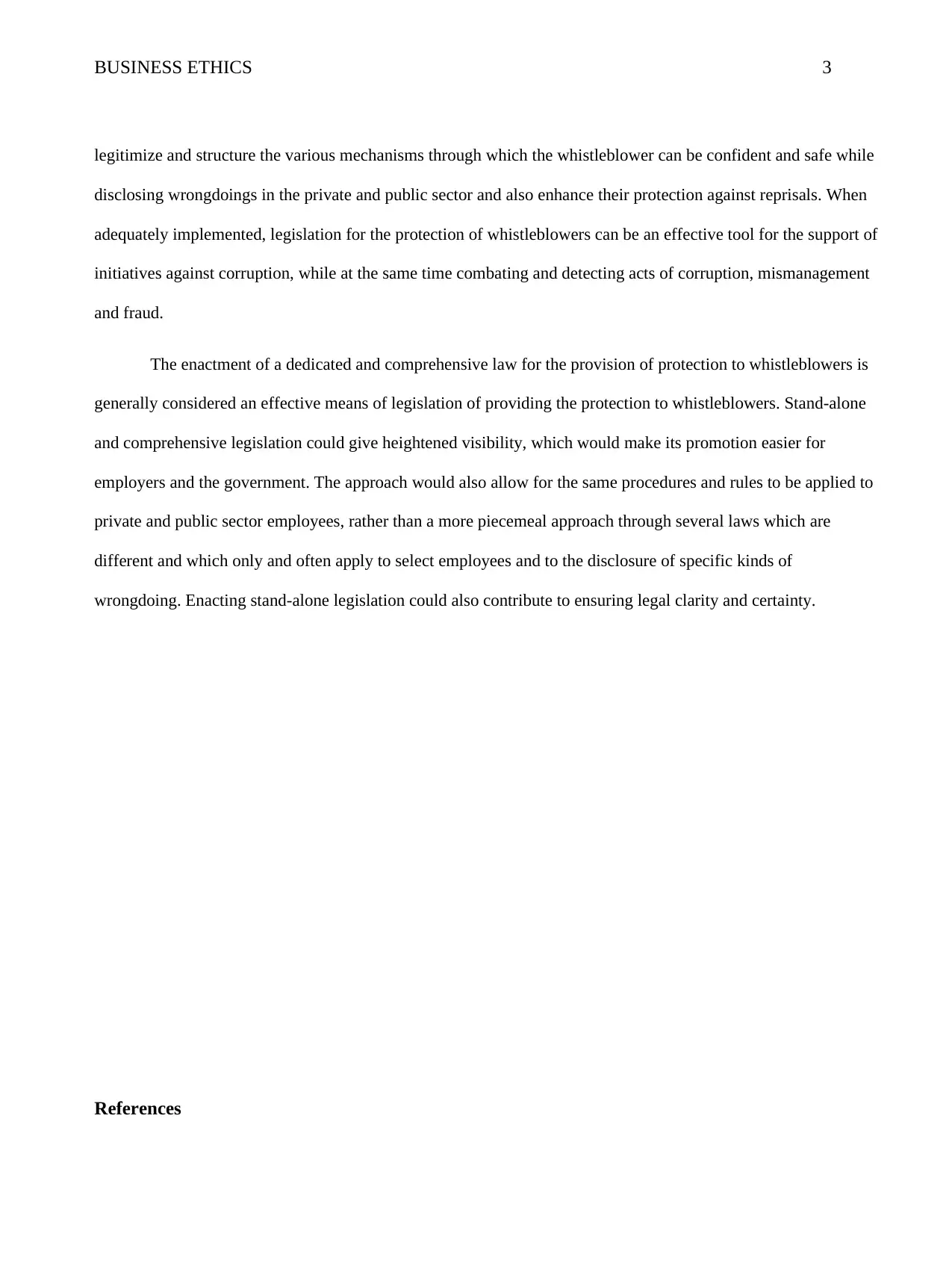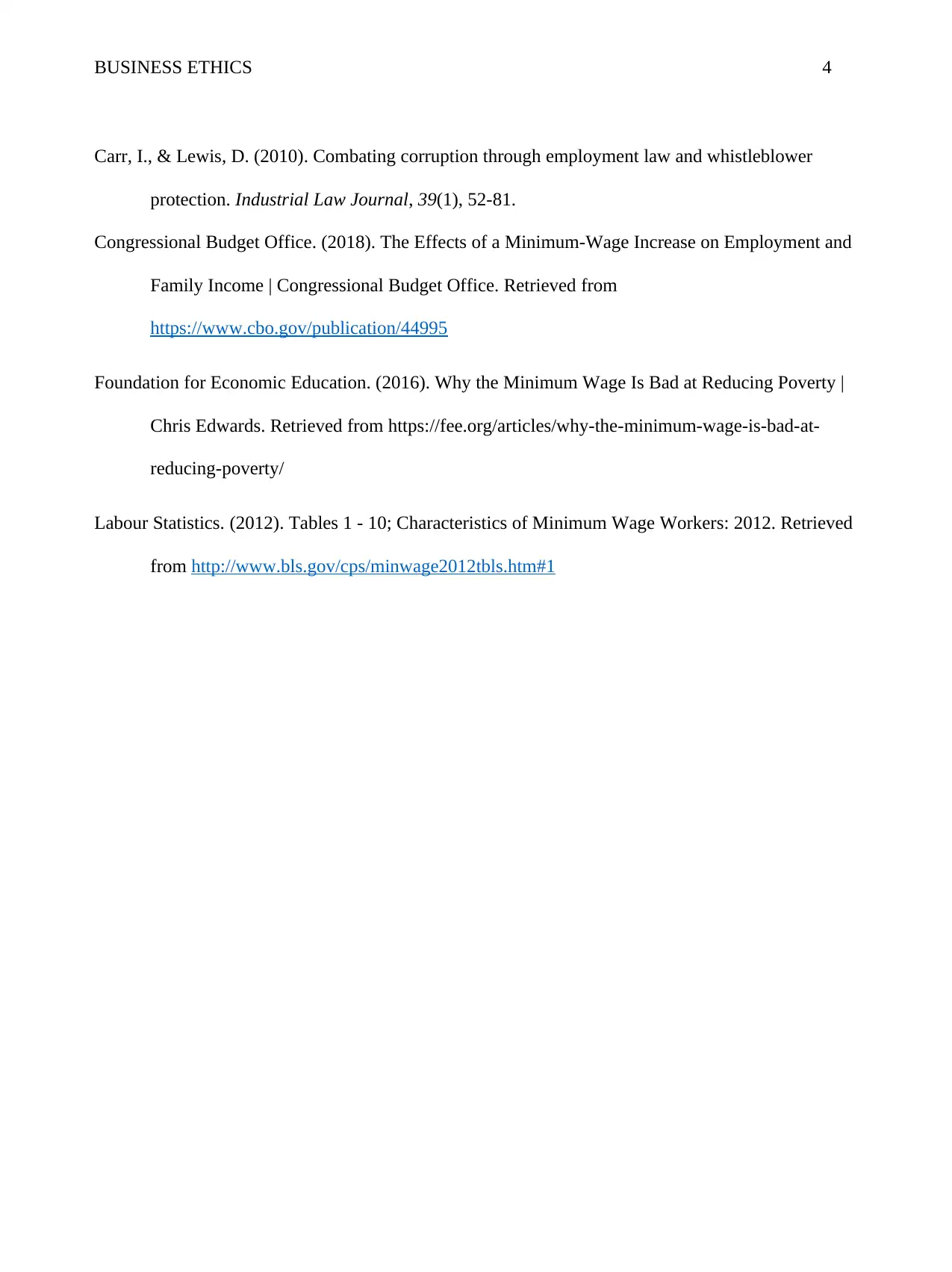Business Ethics Assignment: Poverty, Minimum Wage, and Ethics
VerifiedAdded on 2021/11/09
|4
|744
|20
Homework Assignment
AI Summary
This assignment delves into two critical aspects of business ethics: the impact of minimum wage and the protection of whistleblowers. The first section examines the debate around increasing the minimum wage to $15/hr, arguing that it may not alleviate poverty due to potential job losses, reduced working hours, and the substitution of low-skilled labor with technology. The analysis cites research from the Foundation for Economic Education, labor statistics, and the Congressional Budget Office to support this viewpoint. The second section focuses on whistleblower protection programs, discussing potential abuses arising from inadequate legislation and suggesting that comprehensive legislation is crucial to protect whistleblowers from retaliation, legitimize disclosure mechanisms, and combat corruption in both the public and private sectors. The assignment emphasizes the importance of stand-alone legislation to ensure clarity and consistent application of procedures and rules.
1 out of 4





![[object Object]](/_next/static/media/star-bottom.7253800d.svg)